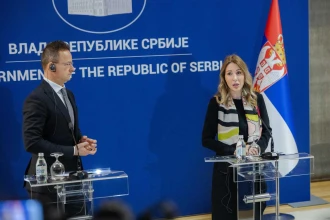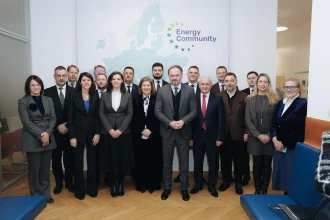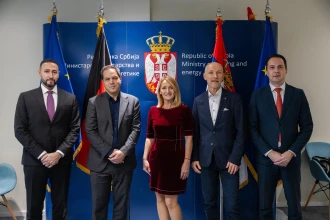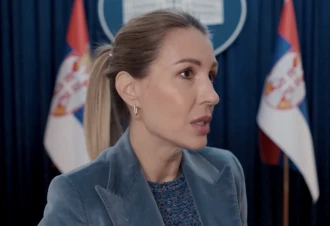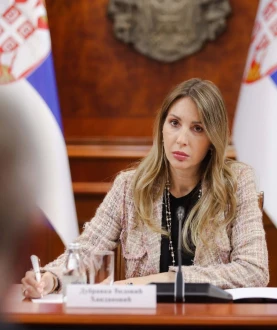Serbia has ambitions to become a full member of the EU, and commits to phase-out coal by 2050, that is, to decarbonize our energy sector. This will take years and huge resources, and that is why planning is crucial for a successful energy transition, said the Minister of Mining and Energy Dubravka Djedović today.
Djedović at the Belgrade Energy Forum
"Having committed to coal-phase out by 2050, we will be planning the development of our energy sector, and we are already working on that by preparing a new Energy Development Strategy until 2040 with projections until 2050 and an Integrated National Energy and Climate Plan, which we expect to be adopted by the end of the year. Our goals will be ambitious but realistic, in order to ensure that we will achieve the security of supply and that our energy transition process is financially sustainable and socially just for the mining sector and all employees in that sector," Djedović said at the opening of the Belgrade Energy Forum.
She said that a share of 45 percent of RES by 2030 is a realistic target when it comes to the participation of renewable sources in electricity production, whereas the target related to the final gross consumption should be between 30 and 40 percent, which depends on many factors and energy scenario models.
"We expect that the Government will soon adopt a list of priority projects that covers the entire energy sector, and the first indications show that we need to invest more than EUR 15 billion in the coming years, the majority of which is for production capacities, and the rest are investments in the transmission network and distribution system, oil and gas sector. We will invest more in solar power from state owned production capacities, in the construction of HPP Bistrica, and we will also consider whether there are technical and economic conditions for the construction of HPP Djerdap 3, because such a power plant would provide more energy independence for the citizens of Serbia and more renewable energy in the grid. We will build and invest in the Morava Solar Power Plant, the Kostolac Wind Power Plant, the Vlasina HPP, as well as in the revitalization of existing HPPs. That is why we need a strong state owned company, interconnecting with neighboring countries, as well as partnering with strategic partners who are the most important players in certain areas and from whom we can learn the most," said Djedović.
The Minister reminded that, although we strive for the same goals, we do not have the same, starting positions, either in Europe or as the countries in the region. "At the moment, Serbia does not have access to funds with which the EU supports its member states in the energy transition. However, we have access to certain funds that we need to use even more efficiently, and we had significant support from the EU on key projects such as the construction of the Serbia-Bulgaria Gas Interconnector and the Trans-Balkan Corridor," said Djedović.
She pointed out that the adoption of amendments to the law created the conditions for the introduction of new capacities for the production of energy from renewable sources, and that investors will have the necessary security and certainty to plan their projects based on clear rules when it comes to the responsibility for balancing new capacities from RES, primarily for commercial projects.
She added that it is particularly encouraging to have such a high interest in subsidy programs for the promotion of energy efficiency in households and in gaining the prosumer status. "The number of prosumers has tripled in the last six months and now there are more than 1,300, and the total power of these power plants is about 15.5 megawatts," said Djedović.


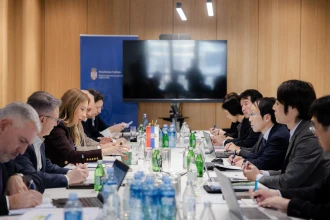
.webp)
